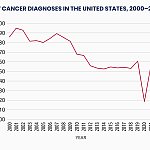
Millions of people are regular
Considering that around 1 in 7 deaths worldwide are caused by coronary heart disease, coffee’s potential cardioprotective benefits make it an exciting topic of research.
The most recent study on this topic, published inRheumatology on October 9, found that consuming more caffeine—found in sources such as coffee, tea, and cocoa—may help improve blood vessel health. What made this study particularly interesting was that it was conducted in patients with lupus, an autoimmune disease that has been tied to an
But what does all the evidence so far say? Can coffee improve heart health, or does too much cause harm?
Building upon Medical News Today‘s regular in-depth reporting on studies related to heart health, this overview aims to provide a snapshot of the key pieces of research on caffeine‘s effects on the heart and overall health with experts’ views on these findings.
According to a study published in September in the Endocrine Society’s Journal of Clinical Endocrinology & Metabolism, consuming coffee and caffeine in moderation on a regular basis could help prevent conditions like type 2 diabetes, coronary heart disease, and stroke. The amount the researchers found that had the most protective effects was around 200–300 mg daily, or roughly 2-3 cups of coffee.
Drinking coffee in moderation linked to lower diabetes, heart disease risk
A study not yet published in a peer-reviewed journal but recently presented at ACC Asia 2024 in India in August found that people who chronically consume high amounts of caffeine at least five days per week may have an increased risk of cardiovascular disease. This was true even if the study participants were otherwise in good health.
Drinking high amounts of caffeine 5 days a week may increase heart disease risk
According to a study published in the
Too much coffee, soda may raise stroke risk, while tea may reduce it





